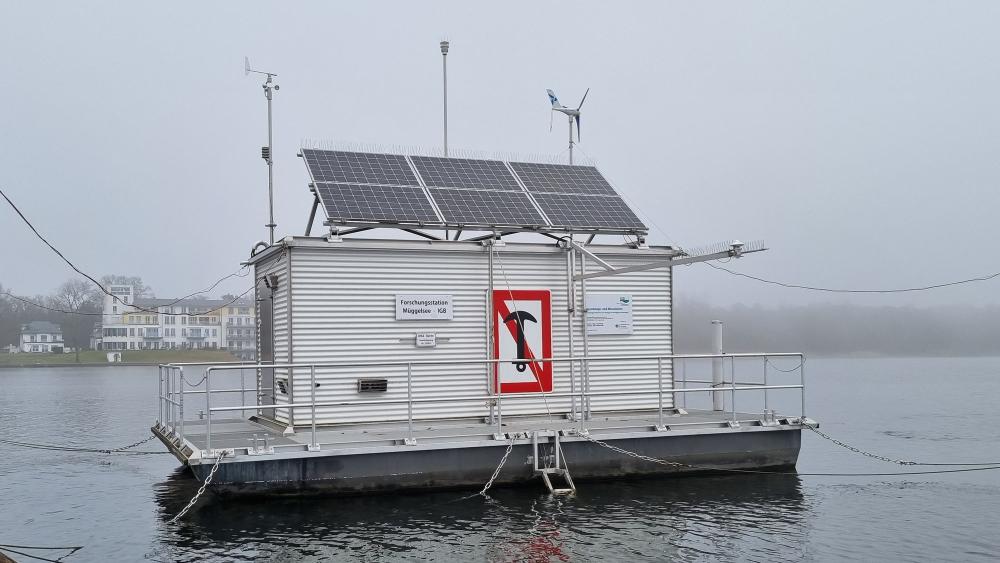
Müggelsee Monitoring Station | Photo: IGB
Lake Müggelsee is located in the southeast of suburban Berlin. The lake is classified as shallow (mean depth 4.9 metres, maximum depth 7.9 metres), polymictic, and eutrophic. The lake covers an area of 7.3 square kilometres and is the largest lake in Berlin. An on-going long-term sampling programme (since the 1970ties) provides data on plankton, physical and chemical variables. Within our long-term research programme we put focus on the impact of global climate change on the thermal regime of lakes, the mechanisms driving the structure and functioning of aquatic communities and the establishment and maintenance of biodiversity.
We run an automatic research and monitoring station ('Georg Mothes') anchored 300 metres off shore where meteorological, physical and biological variables are measured continuously. We use these long-term data series to investigate and assess the impact of climate change, for example. Our times series provide an extensive documentation of the ecological impact that climate and environmental change has on lakes – which only very few other time series in the world can match. The Müggelsee station is part of the international lake observation network GLEON (Global Lake Ecological Observatory Network) and the European network NetLake (Networking Lake Observatories in Europe).



